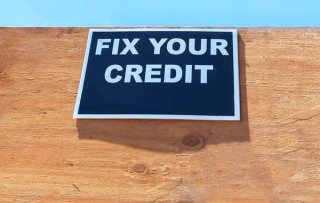How to value a small business
Published by Gbaf News
Posted on October 16, 2019
3 min readLast updated: January 21, 2026

Published by Gbaf News
Posted on October 16, 2019
3 min readLast updated: January 21, 2026

Ensuring the valuation of a small business is accurate is a hard task as owners often put their heart and soul into building and running it, but the profits ultimately might be less. Small businesses therefore might be extremely valuable in the eyes of the owner, but a potential buyer might not agree with the valuation. However, when it comes to selling or buying a small business it is vital that its value is calculated correctly. We look at how you should go about valuing a small business below, and our tips are handy if you are looking to buy or sell one.
Calculate the earnings
Finding out the value of a small business is a tricky proposition as you have to take the account books into consideration and also the amount of customers it attracts. One way to overcome these problems is to find out the Seller’s Discretionary Earnings (SDE), which is basically what a business earns before taxes are deducted. The SDE also does not include non-cash expenses, and the compensation which the owner deducts. As a result the SDE allows for an accurate estimate of profit to be made.
Find out the growth rate and market share of the business
During the valuation process it is vital that the market share of the small business be checked. Additionally similar sized businesses in the industry should also be checked and compared against the business that is being sold or bought. By comparing similar businesses, the growth potential and market share can be assessed accurately.
Hire a professional to help value the small business
Ensuring that the value of a small business is accurate can be a tiresome process and one which is extremely complicated. Due to this complexity and to cut short the valuation process, many entrepreneurs decide to hire a professional accountant to value a small business.
Get all the Relevant Financial information
An important aspect when it comes to a valuing a business is getting all the financial information pertaining to it. Only once you have this information will you be able to get an accurate valuation. It will also help circumvent any undervaluation that in the long term can cause a business to close down or run a loss. When evaluating financial information it is also vital to estimate the net liquid assets the business has in terms of equipment, furniture, and real estate, after debts are paid.
Figure out future earning potential
Checking how much a business has earned over past few years is also important. This process will help you find out if earnings have risen or fallen over the years. Also it will help you predict future earnings if there are no major changes in the industry, and whether the small business will be profitable in future. Additionally if a business is growing its SDE Multiplier will be higher, and as a result it can be sold at a better price which can be anywhere between 1 and 4 times the SDE.
Even if you are calculating the value of small business on your own without any professional help there is no right or wrong way to go about it. Once you understand that the process of valuing a small business is hazy. You can pick an approach you want to use when valuing a business, whether it is based on income, assets, or comparing market value against similar businesses.
Explore more articles in the How To category











